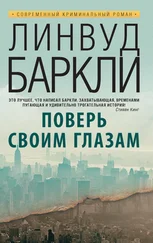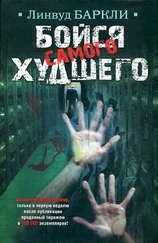Bourque believed she had the skills, if not the actual inclination. “And if you decide to have an affair,” he said, “you’ll know how to get away with it.”
Delgado smiled. “No way Albert’s finding out about Ryan.”
Bourque grinned. Delgado had a thing for actor Ryan Gosling. She’d seen all his movies multiple times. Once, on a trip to Canada, she even drove by the Burlington high school he’d attended. A photo of him from a magazine was taped to the edge of her computer monitor.
“I think, maybe having his picture there would be a clue,” Bourque said.
Delgado shook her head. “It’s the opposite. If he and I were seeing each other, putting that picture there would be the last thing I’d do. It actually keeps anyone from being suspicious.”
“Brilliant,” Bourque said.
“Anything back on the DNA?”
“Don’t make me laugh. How about the tip of the finger? Were they able to pull a print off it?”
Delgado said, “Waiting. Looks like a pinkie. They found it about twenty yards north of the bench the body’d been dumped behind, just to the edge of the path, in the flower bed. Once we get a print, and they do the DNA, we’ll find out if our guy’s in the system. The hands were callused, suggesting the vic did physical work.”
“And the socks are a dead end. So far.”
Delgado said the review of surveillance video along the High Line was also going nowhere, at the moment. “But at least there’s this.” Delgado pointed to her computer monitor. “I’m sending it to you.”
Bourque signed in and called up the file his partner had shared. It was a picture from the coroner’s report of the dead man’s cobra tattoo.
“That tat might be the best thing we’ve got at the moment,” he said.
Delgado nodded. “It’s something. We can start hitting tattoo parlors. Wondering if it’s time to put out a release. White male, best guess is between forty and fifty years old, photo of the tattoo, those socks.”
“I’m gonna make another call to Missing Persons,” Bourque said. “Maybe somebody’s worried Daddy didn’t come home.”
“Knock yourself out,” Delgado said.
Bourque first went onto the NYPD’s Missing Persons Twitter feed, then its website. Most of the missing were categorized as “silver alerts,” which applied primarily to senior citizens with Alzheimer’s disease or some other form of dementia. These were folks who’d wandered away from home or a facility, and in most cases turned up okay. Many of the others were kids who’d failed to come home. But the likelihood that any of these were child abductions was low. These were youngsters who’d had a fight with their parents, or stayed over at a friend’s house without thinking that a call home might be a good idea. If a child had been taken, odds were it was a parental abduction, a custody fight that spiraled out of control. That didn’t mean it was any less serious an event. Some parental abductions ended up very badly. Murder-suicide, for example. Teach the other spouse a lesson.
What didn’t come up on the Missing Persons list very often were middle-aged men or women without any history of mental disabilities.
Bourque didn’t see any recent postings that sounded like the High Line victim. There were a couple of men who had been missing for several months who were, as the saying went, “known to police,” and could very likely be residing at the bottom of the East River, but the man Bourque was hoping to identify was very recently deceased.
He put in a call to the Missing Persons bureau to ask if they’d had any reports about a middle-aged white male they’d not yet put on the website.
“Funny you should ask,” they said.
The house was on Thirty-Second Street, between Broadway, to the south, and Thirty-First Avenue to the north, in the Astoria part of Queens. It was a two-story semidetached, gates across the driveway that were intended to keep anyone from ripping off the ten-year-old Ford Explorer parked there. It sat on a slab of concrete that sloped downward toward a single garage door.
Lois Delgado parked their unmarked Ford Crown Vic out front, although anybody who knew anything would immediately be able to spot it as a police car with its plain minihubcaps, lights inside the front grille and atop the rear window shelf, and antenna on the trunk lid.
Bourque got out the passenger side and waited until Delgado had rounded the car so they could approach the front door together. She rang the bell and stood ahead of him.
Seconds later, the curtain was pulled back an inch. A woman peeked out. They heard a deadbolt turn and a chain come off before the door opened.
“Mrs. Petrenko?” Delgado said. “Eileen Petrenko?”
The woman was in her forties, about five-four, plump, her brown hair pulled back tightly into a bun. She eyed the two of them with apprehension.
“Mrs. Petrenko, I’m Detective Delgado and this is Detective Bourque.”
“Oh my,” she said. “Have you found him? Please tell me you’ve found him.”
“Could we come in?” Delgado asked.
“Yes, yes, of course,” she said, holding open the door.
They entered a cramped living room that was a mess of newspapers, magazines, and small office boxes up against one wall.
“I’ve been going out of my mind,” Eileen said, wringing her hands nervously. “Have you found him? Where is he? Has he gone back to Cleveland? He hates it here, I know that, but I can’t believe he’d just go back there without saying a word. I called his sister, and she hasn’t seen him, and if he was going back he’d have got in touch with her, I know he would.”
“Can we sit down?” Bourque asked.
Eileen cleared the couch of newspapers so the two detectives could sit. She took a seat across from them. There was a framed photo of her and a round-faced man with grayish, brush-cut hair on the small table next to her.
“This is Mr. Petrenko?” Delgado asked.
The woman picked up the picture and looked despairingly at it. “I’ve barely slept for two days,” she said.
Bourque had his notebook out. “I know you’ve been over this with the officers who spoke with you yesterday morning, but I wonder if you’d mind going over it with us.”
The woman kept the framed photo in her lap and nodded.
“Your husband’s full name?”
“Otto Mikhail Petrenko.”
“Can you spell that?”
She did.
“Date of birth?”
“Um, February third, 1975.”
“Where was Mr. Petrenko born?” Delgado asked. “What kind of name is that?”
“Russian,” his wife said. “Except for Otto. That is German. He was named after an uncle in Germany. Mikhail was his father’s name. He was born in Voronezh, but his parents slipped out of the country and into Finland shortly after he was born, and then, eventually, to America, when Otto was around four years old. They settled in Ohio, which is where Otto grew up, and where we met in Cleveland.”
“And how long have you been married, Mrs. Petrenko?” Delgado asked, her voice soft and full of concern.
“Seventeen years,” she said.
“The two of you have children? Or do you live here alone?”
“It’s just us,” she said, looking uncomfortable. “Otto had siblings, but...” Her voice trailed off.
“And you own this house?”
She shook her head. “We’re renting. Otto didn’t want to buy. He didn’t know whether he wanted to stay here.”
“In Queens?” Bourque asked.
“In New York. Anywhere here.”
“You moved here from Cleveland?”
“Three years ago,” she said. She glanced at the boxes along one wall. “We’ve still got things in boxes, if you can believe it. It’s not important stuff. We’d move it to the basement, but it’s awfully musty down there.”
Читать дальше
Конец ознакомительного отрывка
Купить книгу








![Линвуд Баркли - Последний выстрел [litres]](/books/412435/linvud-barkli-poslednij-vystrel-litres-thumb.webp)



